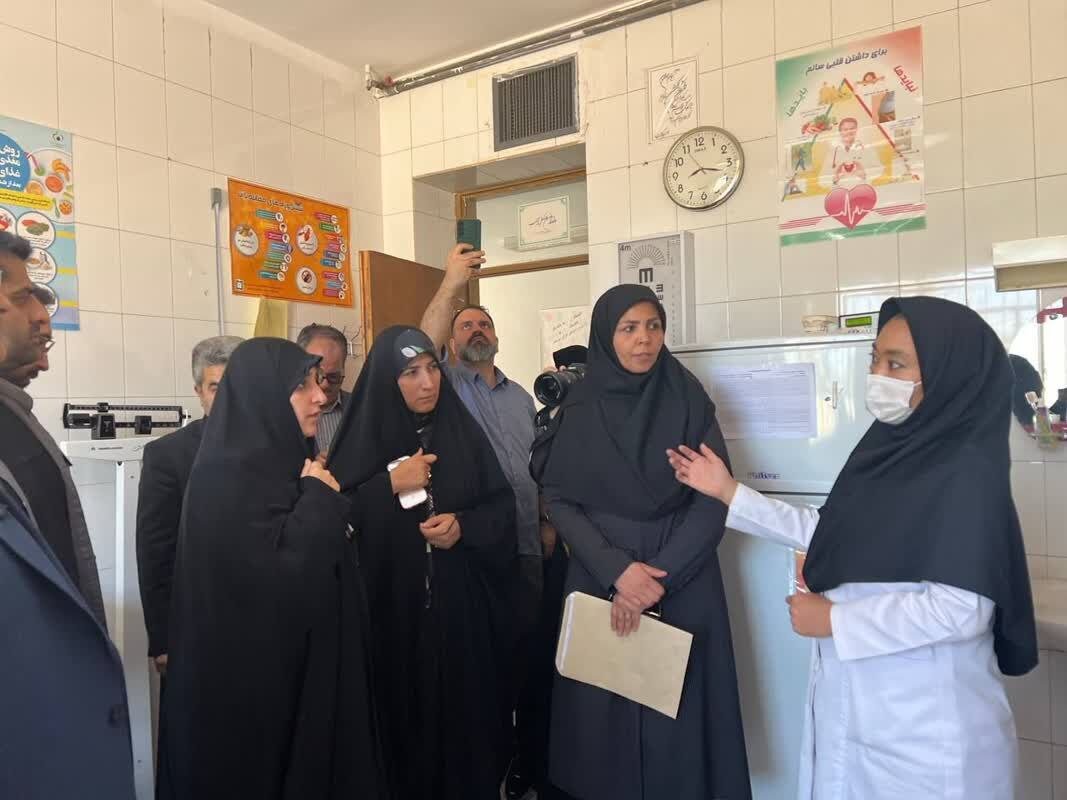VP oversees return of undocumented Afghan refugees at northeastern settlement

TEHRAN –Vice-President for Women and Family Affairs Zahra Behrouz-Azar has paid a visit to Torbat-e-Jam settlement, northeastern Khorasan Razavi province, to oversee the process of returning undocumented Afghan nationals to their home country.
“Unfortunately, the country does not have the capacity to host unauthorized [foreign] nationals any longer,” IRNA quoted the official as saying.
The administration highlights the significance of returning the refugees with dignity, and hopes they would contribute to improving their own country, Behrouz-Azar added.
About 772,000 refugees have been deported since the beginning of the current Iranian year (March 21). Currently, a total of 3,000 Afghans are living in Torbat-e-Jam settlement.
Over 80% of Afghan refugees voluntarily return home
From March 21 to June 27, a total of 717,658 Afghans have returned to Afghanistan; more than 80 percent of them were sent voluntarily.
According to the head of the National Organization for Migration, Nader Yar-Ahmadi, there has been no change in the residency and the kind of services provided to documented Afghans residing in the country.
On the contrary, they will benefit from more services as illegal nationals leave the country, IRNA reported.
“The majority of these nationals are employees or students; we normally consider employment as a foundation for residency in our long-term planning,” IRNA quoted Yar-Ahmadi as saying.
The official went on to say that the presence of illegal migrants in any country poses many challenges, and in critical situations, they will be the main suspects. Their presence negatively impacts the economy, social, and security sectors.
Global experience has shown that migrants at most can account for three percent of the population of any country. With Iran’s population estimated to reach around 90 million next year, the figure will amount to three million migrants. Currently, there are more than 6.1 million nationals living in the country, which should gradually decrease, Yar-Ahmadi added.
According to the International Federation of Red Cross and Red Crescent Societies (IFRC), the number of Afghans returning from Iran this year has surpassed 800,000. More than 137,000 people crossed back into Afghanistan via the Islam Qala border in June alone.
The IFRC has appealed for increased funding, essential supplies, and long-term support to help Afghans returning home from Iran rebuild their lives.
The organization has urged governments, donors, and humanitarian organizations to help refugees, highlighting that the Afghan Red Crescent and its partners are doing all they can, but the scale of need is immense.
“This issue hasn’t received the attention it deserves,” said Alexander Matheou, IFRC’s regional director for Asia Pacific, following a visit to the border over the weekend. “These individuals are not just statistics.
They are mothers, fathers, and children returning to a country already facing enormous challenges.”
MT/MG
